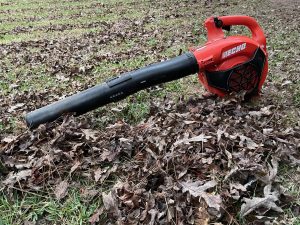 This past March, we covered Florida legislation surrounding leaf blower bans – measures that would strip cities and counties across the state of their ability to ban gas-powered lawn equipment. In June, Governor DeSantis blocked funding for a $100,000 survey that examined the lifespan differences between electric and gas equipment, thereby nullifying the measures the budget item was attached to. This came just in time for certain communities, like Winter Park, who had delayed their referendum on the issue to the March 2025 ballot, even though their gas-engine ban was initially passed all the way back in January of 2022. That was to give lawn companies ample time to switch their old equipment and scheduling – a process that can be very costly to smaller businesses and have somewhat unclear legal implications. Other areas, like Pinecrest and Miami Beach have had their bans in effect for some time now, with seemingly little friction.
This past March, we covered Florida legislation surrounding leaf blower bans – measures that would strip cities and counties across the state of their ability to ban gas-powered lawn equipment. In June, Governor DeSantis blocked funding for a $100,000 survey that examined the lifespan differences between electric and gas equipment, thereby nullifying the measures the budget item was attached to. This came just in time for certain communities, like Winter Park, who had delayed their referendum on the issue to the March 2025 ballot, even though their gas-engine ban was initially passed all the way back in January of 2022. That was to give lawn companies ample time to switch their old equipment and scheduling – a process that can be very costly to smaller businesses and have somewhat unclear legal implications. Other areas, like Pinecrest and Miami Beach have had their bans in effect for some time now, with seemingly little friction.
While there is a noticeable shift within the industry towards lower-emission engines, it’s still going to take some time for them to supplant their old two-stroke counterparts. Even manufacturers are a little skeptical of the cost effectiveness of electric machines for now – like Jimmy Welch of TUFFY Cleaning Systems, who developed a battery-powered industrial pressure washer. In an interview with the Invading Sea, he said, “the No. 1 obstacle (with battery powered machinery) is the price… It’s not affordable yet and I don’t know if it will get affordable or not for the technology that we’re using.” Some state and local governments have begun implementing electric lawncare incentives, as an alternative to bans, but Florida is not yet on the list. “Regulation is how they’re pushing it,” Welch continued. “I would rather it be used because someone has a need for it.”
Always present in the fight for legislative change is a balance between sustainability and cost. While we’ve discussed the noise and air pollution from older gas-powered engines in past newsletters, they represent a large and critical asset to many of the small lawncare businesses across the nation (not to mention do-it-yourself homeowners). These services are vital to our communities and will be among those most directly affected by future local or state legislation. As referendum deadlines approach, we will soon see the outcome in communities across Florida and will report back here.
See you on the trail,
Lisa

